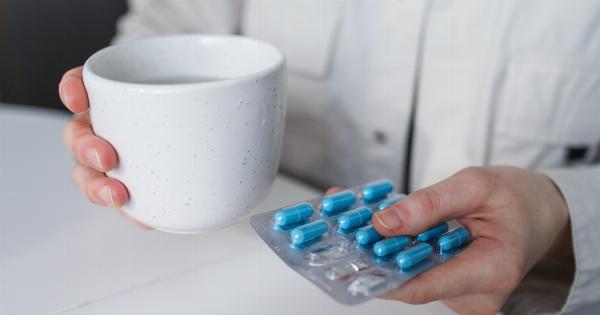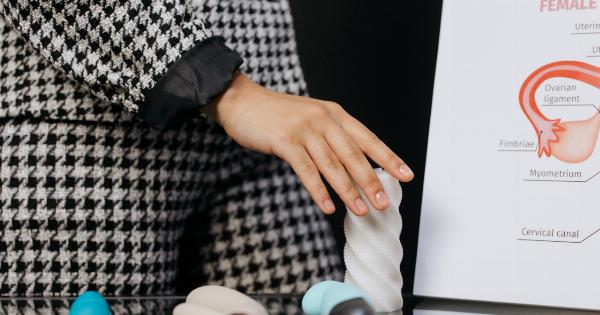Alzheimer’s disease is a neurological disorder that typically affects people over the age of 65. This disease is characterized by the degeneration of brain cells that can lead to memory loss, cognitive decline, and eventually death.
While researchers have been exploring the causes and risk factors of Alzheimer’s disease for many years, one recent area of investigation has looked at the connection between menopause and Alzheimer’s disease.
What is Menopause?
Menopause is a natural biological process that marks the end of a woman’s reproductive years. It typically occurs around the age of 50, although it can occur earlier or later. Menopause is defined as the permanent cessation of menstruation.
During menopause, a woman’s body experiences significant hormonal changes that can lead to a variety of symptoms, such as hot flashes, night sweats, mood swings, and vaginal dryness.
What is Alzheimer’s Disease?
Alzheimer’s disease is a progressive neurological disorder that involves the degeneration of brain cells. The disease typically starts with difficulty remembering recent events and gradually progresses to more serious cognitive decline.
People with Alzheimer’s disease often experience personality changes, difficulty communicating, and problems with daily activities such as bathing and dressing. The exact cause of Alzheimer’s disease is not yet fully understood, but it is thought to involve a combination of genetic, environmental, and lifestyle factors.
The Connection Between Menopause and Alzheimer’s Disease
Recent research has suggested that there may be a link between menopause and the risk of developing Alzheimer’s disease.
One study published in the Journal of Neuroscience found that menopausal women had a higher risk of developing Alzheimer’s disease compared to premenopausal women. The study also found that the level of estrogen in the body appeared to be a significant factor in this increased risk.
Estrogen is a hormone that plays a critical role in the female reproductive system, but it also has an impact on brain function.
When women go through menopause, their estrogen levels decline significantly, which can lead to changes in cognitive function and an increased risk of dementia. Estrogen has been shown to help protect brain cells, enhance memory, and increase synaptic plasticity, all of which are important for maintaining cognitive function.
While the relationship between menopause, estrogen, and Alzheimer’s disease is not completely understood, it is clear that there is a connection.
Some researchers believe that estrogen therapy may be a viable option for preventing or treating Alzheimer’s disease in women, although more research is needed in this area.
Other Risk Factors for Alzheimer’s Disease
While menopause and estrogen levels may be risk factors for Alzheimer’s disease, there are many other factors that can also increase the risk of developing this disease. Some of these risk factors include:.
- Age
- Family history of Alzheimer’s disease
- High blood pressure
- Diabetes
- High cholesterol
- Smoking
- Lack of physical exercise
It is important to note that having one or more of these risk factors does not necessarily mean that a person will develop Alzheimer’s disease.
Many people who have these risk factors never develop the disease, while others who have no known risk factors may still develop Alzheimer’s disease.
Preventing and Treating Alzheimer’s Disease
While there is no cure for Alzheimer’s disease, there are steps that people can take to reduce their risk of developing the disease or to slow its progression once it has been diagnosed. Some of these steps include:.
- Eating a healthy diet that is low in saturated and trans fats
- Exercising regularly
- Maintaining a healthy weight
- Limiting alcohol intake
- Quitting smoking
- Managing high blood pressure, diabetes, and high cholesterol
- Staying mentally active with puzzles, games, and other activities
- Getting enough sleep
If Alzheimer’s disease is diagnosed, there are also treatments available that can help slow the progression of the disease and improve quality of life. These treatments may include medication, cognitive therapy, and lifestyle changes.
Conclusion
While more research is needed to fully understand the link between menopause and Alzheimer’s disease, it is clear that there is a connection between estrogen levels and cognitive function in women.
Women who are going through menopause may want to talk to their healthcare provider about strategies for reducing their risk of developing Alzheimer’s disease, such as lifestyle changes and hormone therapy. By taking steps to protect their brain health, women can empower themselves to maintain their cognitive function and independence as they age.






























